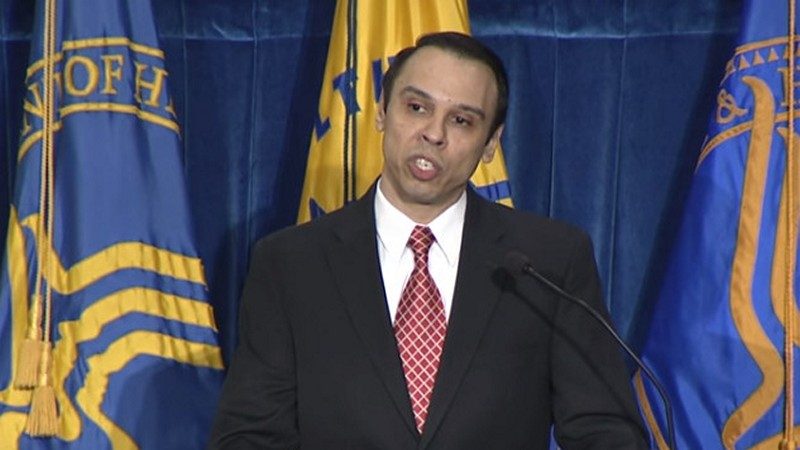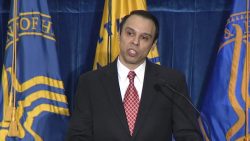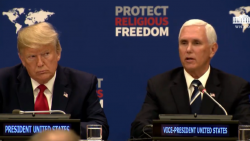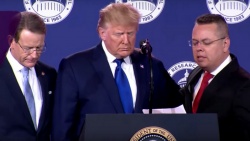The Trump administration has moved to reverse Obama-era regulations that prevented adoption and foster care agencies that receive federal money from discriminating on the basis of sexual orientation and gender identity.
On Nov. 1, the Department of Health and Human Services announced that it would, in the name of religious liberty, stop enforcing Obama-era nondiscrimination regulations for HHS grantees. The same day, the agency announced a proposed rule that would revise those regulations to do away with the nondiscrimination provisions added near the end of the Obama administration.
HHS has served as ground zero for the Trump administration’s aggressive moves to turn the religious right’s agenda into federal government policy. Friday’s HHS announcement declared:
The proposed rule represents the Trump Administration’s strong commitment to the rule of law―the Constitution, federal statutes, and Supreme Court decisions. These require that the federal government not infringe on religious freedom in its operation of HHS grant programs and address the impact of regulatory actions on small entities.
Not surprisingly, anti-LGBTQ religious right groups like the Family Research Council and Alliance Defending Freedom praised the move. But the Family Equality Council’s Denise Brogan-Kator said it will harm foster children waiting for adoption. “Changing federal nondiscrimination rules to allow child-placing agencies to reduce the pool of qualified potential foster and adoptive parents runs counter to the cardinal rule of child welfare: that the best interests of children in care must come first,” Brogan-Kator said.
ThinkProgress noted earlier this year that “LGBTQ children are over-represented in the foster care system, so the more a state’s child placement services are controlled by anti-LGBTQ agencies, the more susceptible those children are to being placed with families that will reject them for who they are.”
In a story posted shortly before Friday’s official announcement of the policy change, the Christian Broadcasting Network reported that the new rule would mean that faith-based groups would only have to abide by the 1964 Civil Rights Act, the Fair Housing Act, and Equal Credit Opportunity Act, which do not explicitly mention protection against discrimination on the basis of sexual orientation. (The Supreme Court is currently considering whether federal civil rights protections against sex discrimination on the job apply to discrimination on the basis of sexual orientation and gender identity; the Trump administration has sided with religious right groups to argue that the law provides no protections against anti-LGBTQ discrimination in the workplace.)
CBN noted that civil rights laws “protect citizens from religious discrimination.” But the Trump administration has already broken through that barrier and approved taxpayer-funded religious discrimination. As Right Wing Watch reported in January, HHS granted a waiver from nondiscrimination rules to Miracle Hill, a taxpayer-funded child welfare agency that refuses to place foster children with Jewish or Catholic families—or with any family that doesn’t meet its conservative evangelical religious test.
As Right Wing Watch noted at the time, that was a troubling change:
Federal civil rights rules have at times allowed religiously affiliated social service agencies to restrict staff hiring to people with similar religious beliefs. But that rule has never applied to the provision of services with taxpayer money. In other words, a church-affiliated charity that gets government funding to help feed or house poor people may be able to hire only Christian staff, but it couldn’t—at least up to now—feed only the right kind of Christian poor people.
But the Trump administration and its religious right allies portrayed that decision, too, as a victory for religious liberty. It was a disturbing sign of just how far this administration is willing to go to use religious liberty as a rationale to dismantle the wall of separation between church and state and to allow the federal government to fund religious agencies that serve only people with favored religious beliefs.









